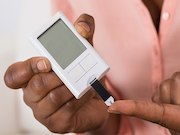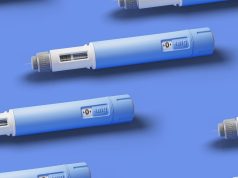Saturated fat intake is significantly correlated with change in HbA1c during DPP4i monotherapy
FRIDAY, Dec. 1, 2017 (HealthDay News) — For individuals with type 2 diabetes (T2D), fat intake may contribute to the deterioration of the hemoglobin A1c (HbA1c)-lowering effects in dipeptidyl peptidase-4 inhibitor (DPP4i) monotherapy, according to a study published online Nov. 24 in the Journal of Diabetes Investigation.
Hitoshi Kuwata, M.D., Ph.D., from the Kansai Electric Power Medical Research Institute in Kobe, Japan, and colleagues examined the correlation between deterioration of the HbA1c-lowering effects in DPP4i monotherapy and macronutrient intake among individuals with T2D. Participants who began and continued DPP4i monotherapy without any prescription change for one year were classified as patients who maintained their HbA1c levels during the 0.5- to one-year period after DPP4i initiation (Group A, ΔHbA1c < 0.4 percent; 53 individuals) and those whose HbA1c levels increased (Group B, ΔHbA1c ≥ 0.4 percent; 10 individuals).
The researchers found that Group B had significantly higher ΔHbA1c, Δbody weight, and fat intake, especially saturated and monounsaturated fats. Intakes of carbohydrates and proteins were similar between the groups. There was a significant correlation for fat intake, especially saturated fat intake, with ΔHbA1c in multiple regression analyses.
“Dietary habits, especially saturated fat intake, might well contribute to deterioration of the HbA1c-lowering effects in DPP4i monotherapy,” the authors write.
Several authors disclosed financial ties to the pharmaceutical industry.
Copyright © 2017 HealthDay. All rights reserved.








